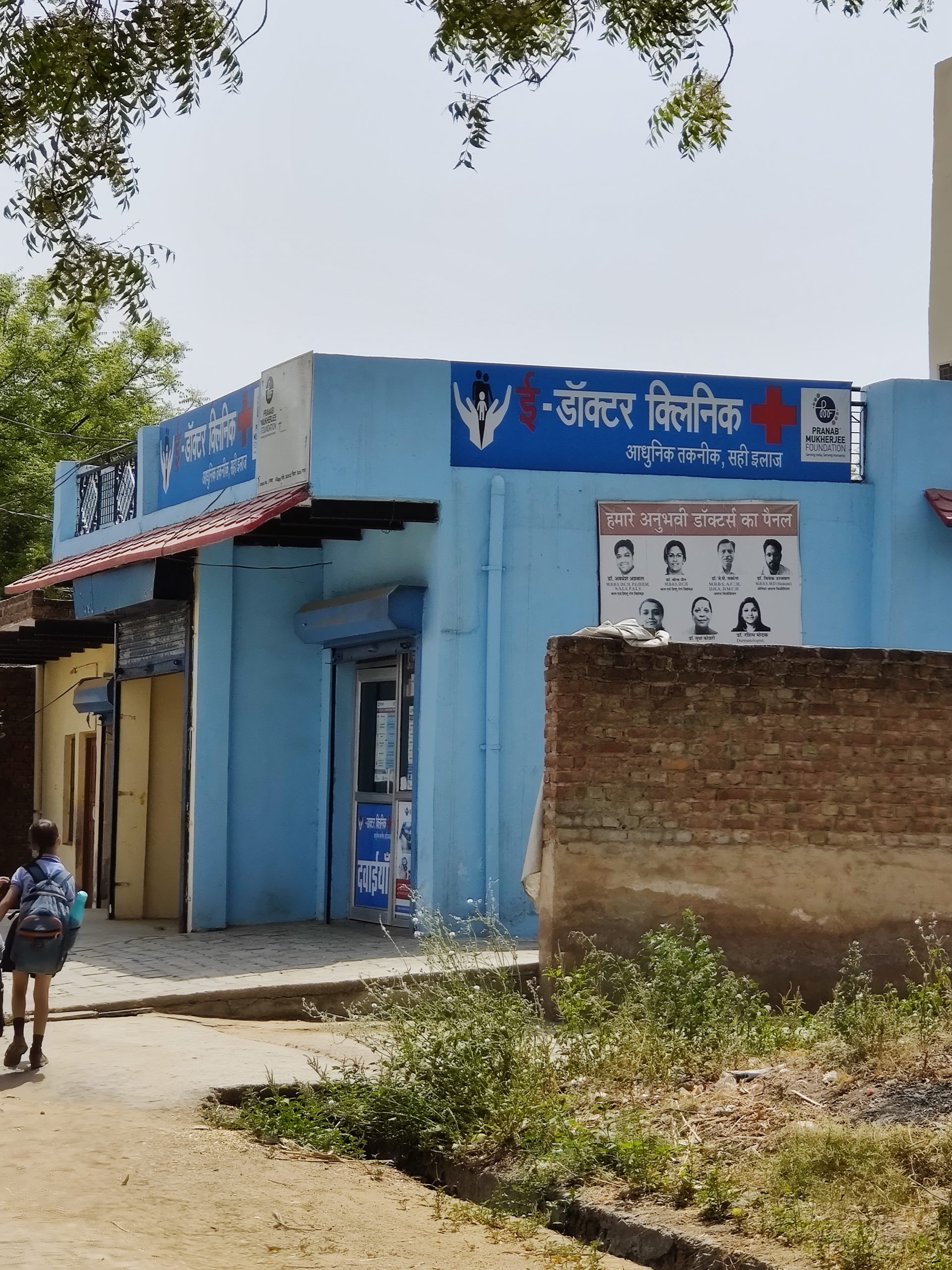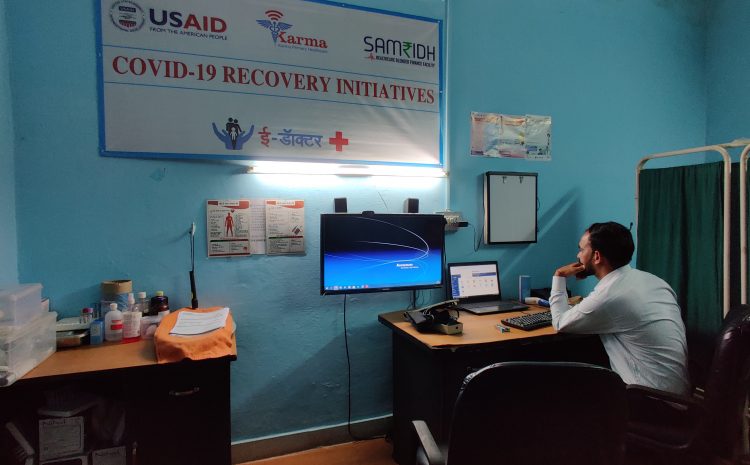“When I got COVID, I was admitted to the local hospital. The staff at the e-clinic visited me there and shifted me home for the required treatment. As my oxygen levels dropped, Karma looked after me and ensured I had everything I needed.” says Vijay Kumar, local confectionerand beneficiary of Karma Primary Healthcare’s e-clinic at Dauhla Village in Gurugram, Haryana.
Gurugram, also known as the Millennium City, brings to mind an image of sprawling skyscrapers, innumerable businesses, best-in-class infrastructure and medical facilities – a truly global city. However, travel less than 30kms ahead of the city to Dauhla Village and the narrative changes completely. A small village, Dauhla is marked by unstable electricity connections, poor infrastructure and an overcrowded and understaffed public health center.
Dauhla was transformed when Karma Primary Healthcare set up an e-clinic in the area. A technology-enabled start-up, Karma is working to make primary healthcare more accessible and affordable by using telehealth to bridge the urban-rural divide. In a country like India where rural populations spend exorbitant amounts to access basic medical services, compelled to travel to larger cities and undergo treatment in specialty hospitals with costly consultations, medical tests, and medication, Karma’s nurse-assisted digital clinics or e-clinics bring specialized healthcare right at their doorstep. Karma Primary Healthcare founder, Jagdeep Gambhir believes technology can transform rural healthcare and is deeply committed to providing affordable and accessible health care to people in the hinterlands. Karma Healthcare is his vehicle to achieve that objective.
Gambhir’s conviction regarding the transformational impact of technology was borne out during the pandemic. At a time when healthcare access, outcomes, and affordability faced a setback, telehealth, which offers a chance to reinvent virtual and hybrid care models, proved to be a game-changer. Karma is leveraging this model to provide equitable access to quality primary healthcare, supported by qualified doctors, diagnostics, and referral services, to the most vulnerable. The model allows direct patient-to-doctor consultations with the nursing staff acting as an important bridge between the two. The entity also focuses on spreading COVID-19 vaccine awareness, door-to-door counseling on essential health information, and the distribution of medical devices.
Despite the positive outlook for telehealth and a number of successful government and private initiatives, start-ups in this space face many challenges, chiefly the means to raise funds, hire people, and expand networks. These solutions have low profit margins and rely on achieving economies of scale to make their services sustainable. Often such solutions have little traction with commercial financing institutes and this is where innovative financing can play an important role in enabling enterprises to avail affordable capital towards achieving their full potential.


SAMRIDH SUPPORT
Karma could scale its idea with the support of SAMRIDH , a blended finance facility, supported by USAID and implemented by IPE Global. SAMRIDH’s financial assistance has enabled Karma to expand the complete continuum of primary healthcare services and reduce out-of-pocket expenditure for vulnerable communities in the catchment areas of 25 clinics.
Karma is now gaining transformative community trust and expanding their knowledge and perception on availing preventive and primary healthcare through technology. With its key geographic focus on Rajasthan, Gujrat, Madhya Pradesh, and Haryana, – Karma aims at potentially reaching out to 200,000 beneficiaries.
The impact of Karma’s intervention has been felt even more deeply during the pandemic, when health infrastructure came under severe stress, especially in rural settings. “Earlier I would spend Rs. 1,200-1,400 going to Gurugram to avail treatment in a hospital, incurring high expenses. The e-clinic opening at a walking distance from my house has been a blessing for me and my family, especially during the pandemic. When my son was suffering from a bad case of COVID-19, the clinic staff was extremely helpful in helping us get the right medical advice and medication. Reassured by the doctors and Karma staff, we were able to implement the correct protocol and overcome the disease”, says Nukta, home-maker and a beneficiary of Karma Healthcare in village Dauhla.
While, Karma transforms the future of primary healthcare, the setting up of e-clinics has also reshaped patient-doctor relationships. Lalita Sharma, a nurse working at the Karma run e-clinic in Dauhla shares how her personal connection with the community improves health outcomes “When we work in hospitals, there’s no time to develop connections with the patients. Since this is a smaller setting, we develop close relationships with the community members through our frequent interactions with them and have been able to gain their trust and respect. This helps us understand and serve them better. I like this the most about working here”, says Sharma. These interpersonal relationships play an important role in influencing health seeking behavior of communities in the long-run.
Karma Healthcare is a true example of how technology can be leveraged to transform primary healthcare delivery in India. Harnessing digital connectivity, Karma’s ‘assisted e-health’ business model combines technology and the human touch to deliver a sustainable rural healthcare model. Solutions such as these are proving to be crucial to reducing the reliance of vulnerable communities on untrained and unqualified healthcare providers. This will have a long-lasting impact on improving health outcomes through timely treatment, detection, and reduction of preventable mortalities. Thus, augmenting the Government of India’s efforts to build grassroots preparedness for health crises and a resilient healthcare system.

